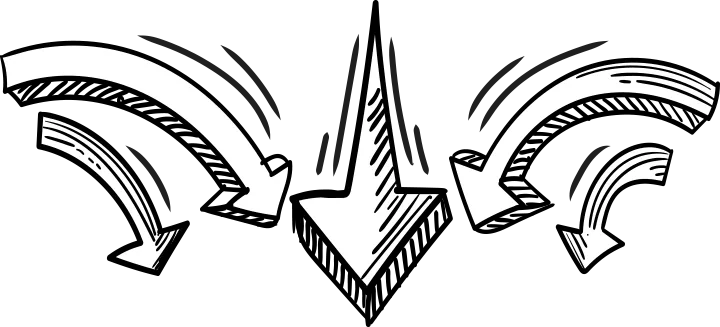The information in this post has been updated for 2019. Read the new article!
With the launch of any new affiliate program you get inundated with affiliate applications in the first week. It is both one of the most exciting times for an affiliate manager as well as a frustrating time. It’s exciting to watch outstanding affiliates that you know join the program but it is frustrating when you wake up to 200 applications on a Monday morning.
Along with the known affiliates applying to your program, there are hundreds and thousands of applications that come through that are either suspect, fraudulent or simply incomplete. If you are an affiliate manager reading this, you’ll probably be nodding your head and maybe even have a chuckle. If you are an affiliate that seems to receive more denials than approvals when you apply to programs, this article is just for you. I’d like to highlight some of the things that managers see every day that you may be doing and need to avoid in order to get your applications approved. So let’s get started…
- “Make A Million” Shopping Malls – These are sites that someone purchases from companies that supply them an entire mall that will make them millions of dollars. These sites are relatively cheap to buy and provide the purchaser with a complete website, they only need to reach out and join affiliate programs. While these sites look good, I have never seen one of these make any sales for any of the programs I have run and I have managed over 35 across industries. Most program managers recognize these with very little effort and deny these applications. Like all things, successful endeavors take, hard work and initiative. These sites sound too good to be true because they are. My advice to anyone who has purchased this already, find a niche you know a lot about and start over. I’ll write more about this in a future post.
- Blogs with no content – This is a sure way to get your application rejected. I am sure that your new blog and your new theme hold within them your hopes and dreams, but having not one single post on your site does nothing to show affiliate managers who you are and what your site is about. My recommendation – get ten posts on your blog, fill that first page. After you have that done, I would make sure any customization or unique plugins that you plan to use are on the site. Make it look unique. We see hundreds of applications with the WordPress default theme and no content. Many times fraudulent affiliates use this method to get approved without raising flags. Post your content, design it then apply to the affiliate programs.
- Different language sites – I see 20 or so applications a week for sites that are in Japaneze or other languages. I am sure that they are great sites, but with no description in english I am not able to effectively review the site. Most affiliate programs are no longer accept everyone and anyone, if it is too hard to evaluate your application it just gets denied. In your affiliate account, be sure to outline your site and how you plan to promote merchants as thoroughly as possible.
- Geocities and other free sites – Sites that are hosted at Geocities, Tripod, Members.AOL.com or Freewebs will undoubtedly be denied in many programs. Why? Well, first off, I can’t remember when one of these sites generated any sales for any program and I can’t recall any of my colleagues saying that either. Secondly, if an affiliate isn’t serious enough to register a domain name aren’t going to be serious enough to become a successful partner. Some may not like me saying that, but it’s true.
- Modeling and Real Estate Sites – This seems like a pretty odd combination, but I have seen more applications from these two categories than any other. If you are planning to do something outside of these areas but use those sites in your application, I would make sure the affiliate manager knows about it.
- No URLs – When your application shows no urls in your account, affiliate managers have no way at all to eveluate your application. Merchants are getting much more sensitive to who they partner with, and not knowing who you are will surely lead to a rejection in quality programs.
- Google Adwords – Applications that list Adwords as the url for the applicant and only that url can be tough to approve for programs that do not allow paid search. So if you do something else, make sure you list that too.
- Under Construction and Parked pages – If your site is still under construction, that is a tough sell. Merchants don’t want to partner with someone when they don’t know what their site will look like. Maybe I have said that already :). I have seen affiliates post a simple htlm page on their new domain that addressed the affiliate managers directly and gave a brief description of what they were doing. I highly recommend this and I believe I have approved everyone of those applications. The more we know, the more likely we’ll approve you.
- Banner Farms – These are almost 100% rejected. What is a banner farm? These are sites that have, pretty much, only affiliate banners. They have no other content and no real benefit to the user other than a list of ads for merchants. These are rarely approved and rarely generate sales for merchants’ programs. They offer very little in terms of value add to the merchant as well as the consumer. My recommendation is to spend more time developing your idea. What consumer target are you trying to reach? What value are you going to add to their shopping journey? What are you going to offer that no one else does? Answer those question then find a designer that can work with you.
- Get Rich Quick Sites – The same way you feel as a consumer when you see these sites are they same way affiliate managers do as well. I haven’t seen these perform well.
- International Applications – This probably only goes for programs that is 99% domestic traffic. Applications from third world countries, some Asian countries, Nigeria and some eastern block countries are suspect. Why? Past behavior and experience. Many of the fraudulent affiliates have, in the past, originated from these countries. If you are a legitimate affiliate, and don’t get me wrong, there are many from those countries, you may experience more rejections because of your location. But don’t fret too much. You may be getting refused by a lot of affiliate programs but there are ways to get noticed. You need to show affiliate managers that you aren’t interested in scamming, fraudulent behavior or abusing the program. You have to establish trust as much as you can from your application. Here are a few things you can do: 1. Use your company name, if you don’t have one create one. 2. Email the manager of the program you just applied to and let them know who you are and what your plans are. 3. Use an email account associated with your website. Don’t use yahoo.com, gmail, hotmail or other free services. Having a email@yourwebsite.com email address is typical of legitimate affiliates and will help you get approved.
By no means is that list 100% complete, but it gives you a good idea of things to avoid in your applications and a few reasons why your applications would be rejected. Let me share some things I recommend that you do do in order to get approved (I included some of them above):
- Complete Account Information – don’t leave any fields blank in CJ, LS, ShareASale, Google and others. Fill out all the information. The more complete the application, the more likely you’ll get approved. Just the effort involved in filling out all the fields shows you are serious.
- Contact Info – A little contact info goes a long way. Include your email address and your phone number when possible. Affiliate programs view affiliates as partners, if you can’t contact your partner, they aren’t really a partner are they?
- Email the manager – You’d be surprised, but one of the number one things managers wish they got more of was contact from their affiliates. If you are really interested in working with someone, reach out to them, share your ideas and your plans and include your contact info.
- Good Site Design – this goes a long long way. With themes and WordPress anyone can put together a pretty decent site. Here are some themes I would look into: One Theme, Woo Themes, Citrus Themes, Revolution. Getting a good designer involved will lead to sales, but those themes and WordPress will get you started with little cost. If you need design let us know, we can help.
- If your site is under construction, put up a simple html page that says what you are planning to do. Affiliate managers love this and it will help you get approved and get insight and advice on your new idea.
Hope that helps! What do you think? Affiliate managers, did I miss anything. Do you think I’m off on any of these items? I’d love to hear what you have to say.


